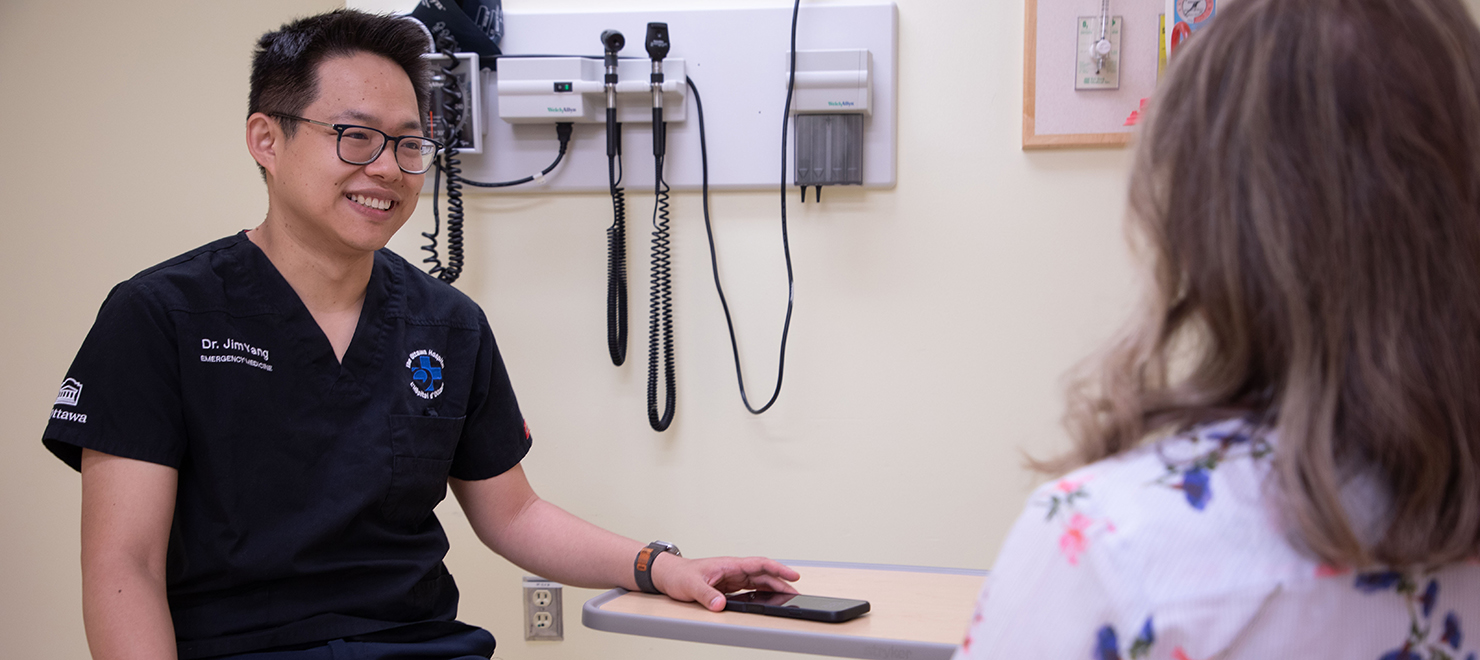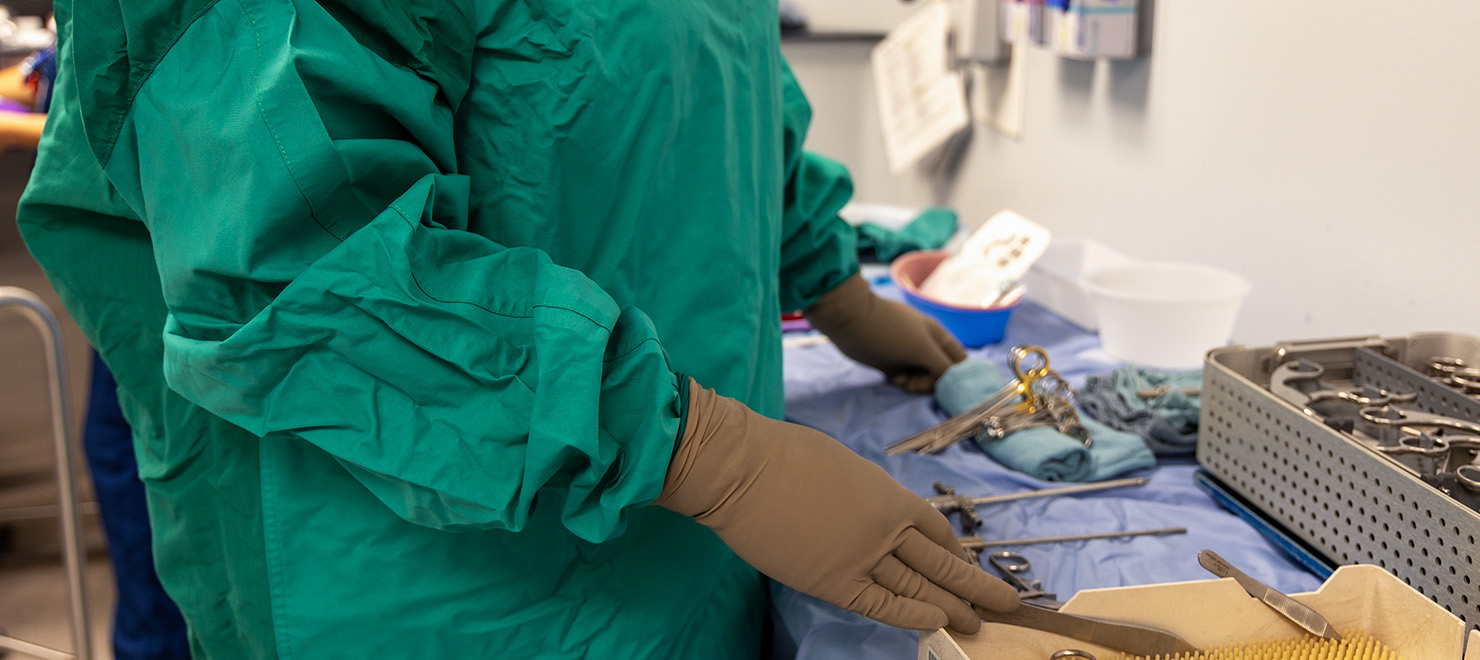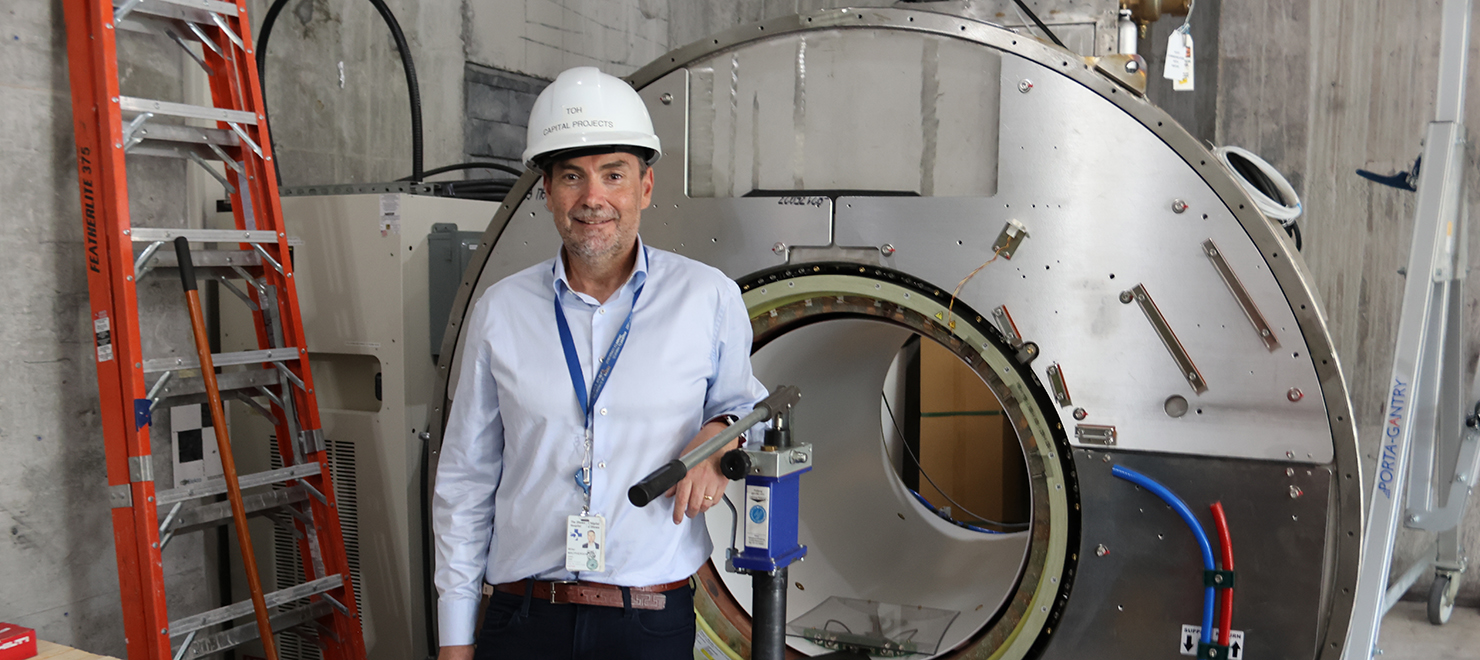
We believe that a healthy environment supports healthy patients and staff. That’s why The Ottawa Hospital is proud to do its part to support a greener world. In honour of Earth Day, we’re sharing six ‘green’ initiatives at the hospital that you might not know about.
1. Championing sustainable design
The New Campus Development will integrate health-sustaining features into the design that reduce stress and improve wellbeing for patients, visitors, staff and volunteers. Inside, the environmental benefit of the high-performance building will include cleaner air, reduced demand for energy and water, and encourage rainwater infiltration.
The site will use what’s known as ‘biophilic’ design, which encourages a strong connection between the people in the buildings to nature and the outdoors.

Inside, the hospital will have plenty of natural light and views out to naturalized areas on and surrounding the site. Outside, the site will boast open greenspace, pollinator and natural habitats, a protective wildlife corridor, a bird safe design and convenient access to public transportation.
Learn more about sustainability projects for the New Campus Development
2. Embracing pedal power
With a workforce of more than 16,000 people spread across three campuses and many satellite sites throughout the city, the hospital has taken steps to encourage its staff to leave the car at home and choose this more environmentally friendly way to get to work.

The hospital’s bike-to-work initiative includes a variety of resources to help staff make the switch to biking to work. From working with urban biking organizations to delivering biking safety, bike repair and other biking workshops, to profiling staff who ride their bike in winter and celebrating Let’s Bike Month in June, many staff have chosen to get to work on two wheels. When they arrive, cyclists can sign up to access one of the locked bike cages at the Civic and General campuses.
3. Greening the OR
Did you know that anesthetic gas, an operating room staple, has big impacts on the environment? Virtually all the gases used during any operation are eventually released into the atmosphere. Inhaled anesthetics are greenhouse gases and are estimated to make up five percent or more of a hospital’s entire carbon footprint.
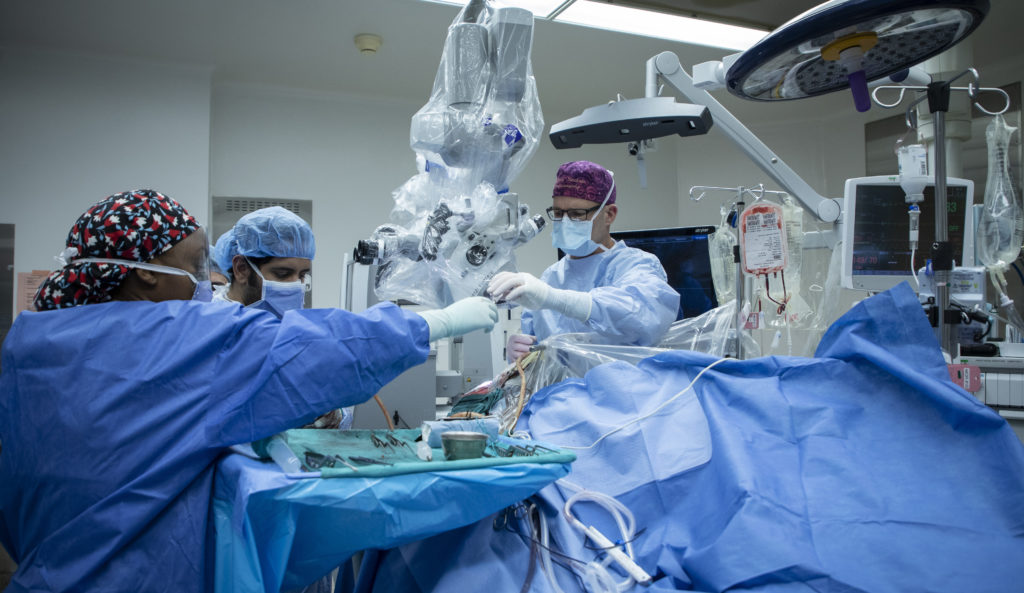
The Ottawa Hospital is reducing its carbon footprint by preferring to use volatile anesthetics with the lowest global warming potential value, using ultra low-flow anesthesia equipment that decreases our consumption of volatile anesthetics and encouraging the use of total intravenous or local-regional anesthesia to minimize volatile anesthetics consumption.
4. Composting and recycling
Similar to a mid-sized cruise ship, every day we serve on average 3,320 meals and 205 snacks to our patients. In March 2021, the hospital debuted a composting program at the General Campus dubbed the Nut and Food Project to reduce our environmental footprint.
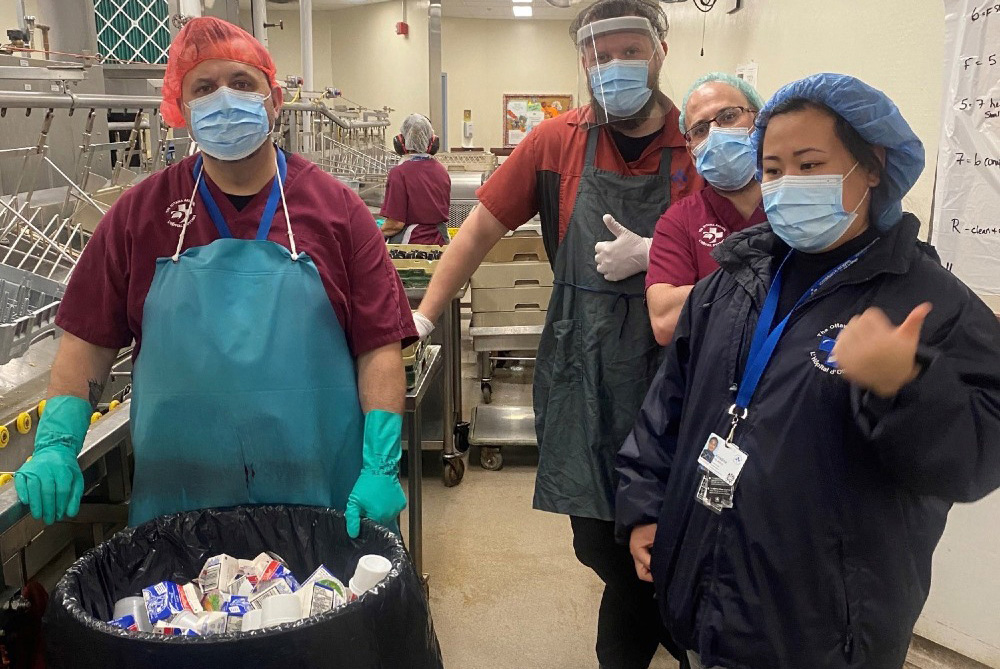
This change diverts thousands of pounds of food waste from the landfill and creates 41,600 pounds of compost. With enhanced recycling programs, we will also divert nearly 20,000 lbs of recyclable materials from landfills each year.
5. Digital faxing
Despite its dated technology and high operational cost, for many hospitals and doctor’s offices paper faxing continues to be the primary method for sending health-care documents.
In April 2020, the Department of Surgery at The Ottawa Hospital embarked on a quality improvement project to encourage its staff to use digital faxing. Since then, many other departments have incorporated digital faxing, too. It’s estimated that the project has saved more than 2,758,785 pages of paper!
6. Greener lab research
We need lab research to understand the diseases of today and find the treatments of tomorrow. But like other areas of health care, it creates a lot of waste and uses a lot of energy.
The Cancer Therapeutics Program Green Team aims to reduce waste in the lab, minimize the impact of their research on the environment, lower their lab’s carbon footprint, increase engagement and literacy around environmental sustainability in their labs and participate in green initiatives in the greater Ottawa community.
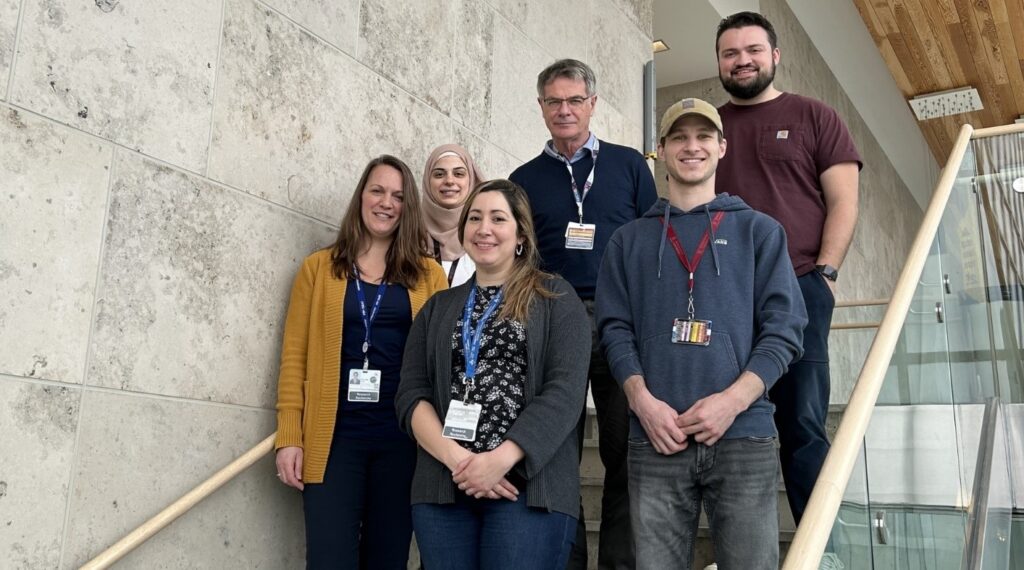
The team includes ambassadors from each cancer research lab who meet every month to discuss green practices. The ambassadors recommend and implement program-wide changes and bring eco-friendly practices back to their groups to share during lab meetings.
Have a green idea for the hospital? Send it to greenteam@toh.ca

Support patient care and research at
The Ottawa Hospital
You might also like…
Less time charting means more time with patients: How The Ottawa Hospital is using AI to support patient care
“I’m seeing and treating more patients.” Find out how DAX Copilot, a powerful AI assistant, is helping our physicians cut down on paperwork, improve their own well-being and spend more time with patients.
For the community, by the community: Building a new hospital campus together
The Ottawa Hospital’s commitment to enhancing patient and visitor experience is at the core of planning for a new hospital campus – a space that will be shaped by the very people it serves.
New reusable surgical gowns a step towards greener operating rooms
The Ottawa Hospital is finding safe, innovative ways to reduce medical waste in its operating rooms by using more environmentally sustainable products.
“Crash testers”: Preparing our health-care teams for real-life emergencies
Swapping patients for manikins, our Simulation Patient Safety Program recreates medical emergencies right in our hospital, allowing our care teams to “crash test” their responses to cardiac arrests, respiratory failures, mass casualty events and more. Dive into this Q&A for a closer look at how this training program enhances patient safety and quality of care.
2SLGBTQIA+ care at The Ottawa Hospital: A helpful guide
The Ottawa Hospital offers an array of services and resources to help meet the specific care needs of the 2SLGBTQIA+ community — including a provincial-first gender-affirming surgery clinic, a 24/7 care program for survivors of sexual assault and intimate partner violence, and a specialty clinic for medically complex patients seeking help on their transition journeys.
New radiation machine targets cancer with pinpoint accuracy — even as the tumour moves during treatment
“We can deliver a radiation treatment that’s exactly personalized for the patient on that day.” The Ottawa Hospital Cancer Centre is now one of the first in Canada to acquire the state-of-the-art MR-Linac radiation therapy system.


 To reset, hold the Ctrl key, then press 0.
To reset, hold the Ctrl key, then press 0.
